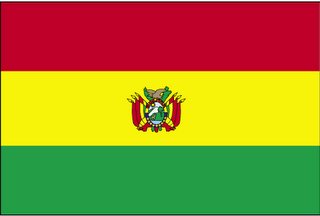Bolivians Race to Guarantee the Vote
Last week the CNE ruled that 400,671 citizens would not be allowed to vote unless they matched their voter records by presenting a copy of their birth certificate to the Civil Registry by December 3.
Departmental electoral courts extended hours and worked over the weekend in an effort to confirm the registration of those affected before the deadline.
The CNE has drawn criticism from both the government and the opposition, but for distinctly different reasons.
The Morales administration and government supporters expressed concern over the possible disenfranchisement of voters - many of whom voted in previous elections without incident.
Meanwhile the opposition parties stated concern about election fraud and have demanded that these individuals be purged from the voter rolls altogether.
CNE Moves on Ruling
On Sunday, CNE president, Antonio Costa, responded to criticism from President Morales. At a press conference, Costa said the electoral body is “doing its job impartially” and will continue to do its job despite the avalanche of complaints against the electoral body.
Reports from the CNE and from electoral courts in the nine departments throughout Bolivia indicate that the number of those affected has already dropped by at least 120,000.
Firstly the CNE moved on its decision, exempting those born before 1943 when Bolivia did not regularly issue birth certificates, which immediately re-instated 50,000 voters.
And the CNE also exempted women who had been widowed or taken their husband’s surname. Many women were unfairly impacted, being identified as two different people due to confusion over their given and married name.
According to a CNE official, these are cases where the nation’s new biometric voter registration system has rejected individuals and incorrectly indicated that they are a different person.
Thousands headed to departmental offices since Thursday, offering documentation in support of their registration.
Roxana Ybarnegaray, head of public education for the CNE, said she anticipated that at least 50 percent of those affected would be confirmed to vote by the December 3 deadline.
While eight of the nine electoral courts have agreed to honor the controversial ruling, Chief Justice of Oruro, David Apaza, has refused to abide by a CNE decision that he considers a violation of fundamental individual rights.
Head of the Court of Pando, Jorge Valdez, expressed concern about rural areas where he believes many people are unaware of whether or not they will be able to vote. According to the CNE about 110,000 of those affected live in rural areas.
Election Transparency
President Evo Morales spent the weekend crisscrossing the country, attending campaign rallies for his Movement Toward Socialism party (MAS) in the departments of Cochabamba, Chuquisaca, Potosi and Oruro.
During public statements made at the Governmental Palace and at campaign stops, Morales claimed the CNE was aiding the right-wing opposition. The president recalled the sacrifices made in the national budget in order to meet the opposition’s demands earlier this year to institute a new biometric registration system ahead of the December elections.
It is the implementation of this system that is creating registration problems at an unprecedented level in a country that has opened its electoral process to international observers for more than three decades.
A record number of 300 international observers from the European Union, Organization of American States (OAS) and the Carter Center will be on hand next Sunday to monitor Bolivia's national elections for president, vice president and representatives of the Plurinational Legislative Assembly.
Labels: karah woodward Bolivia CNE elections biometric observers


 The ruling by the U.S. District Court in the Southern District of Florida is a major victory for the victims of
The ruling by the U.S. District Court in the Southern District of Florida is a major victory for the victims of 





